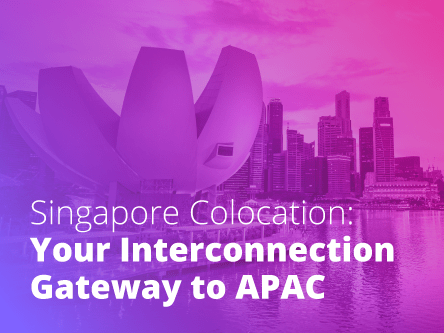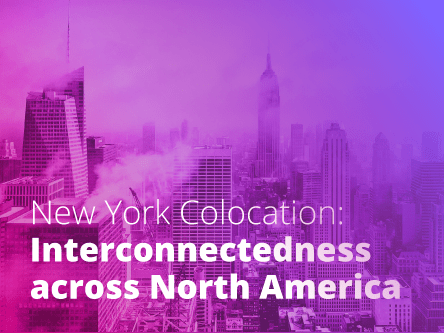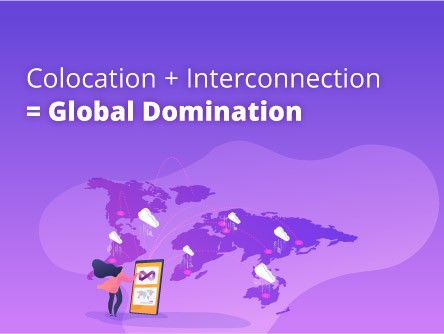Singapore’s Rise as a Regional Digital Infrastructure Leader
Located at the crossroads of global trade and internet infrastructure, Singapore has become an essential gateway to the Asia-Pacific (APAC) digital economy. Its geographical advantage is reinforced by world-class infrastructure, political stability, strong cybersecurity policies, and a highly skilled ICT workforce. As of 2025, Singapore hosts over 70 operational data centres and more than 1,000 MW of installed IT power capacity, serving multinational corporations, hyperscalers, fintech firms, and digital-native enterprises across Southeast Asia.
Beyond its central location, Singapore’s appeal lies in its connectivity. With 25+ subsea cables terminating in the city-state and new cable systems like Asia Link Cable (ALC) and Southeast Asia-Middle East-Western Europe 6 (SEA-ME-WE 6) coming online, the country provides exceptional global and intra-regional reach. For businesses looking to interconnect with Indonesia, Malaysia, Vietnam, India, China, or Australia, Singapore is the logical colocation hub.
2025 Market Outlook: A Maturing Yet Expanding Landscape
The Singapore data centre colocation market was valued at USD 2.02 billion in 2023 and is projected to reach USD 2.40 billion by 2029, growing at a CAGR of 2.91%. Despite being a relatively small market in terms of landmass, Singapore punches far above its weight due to its high interconnection density, regulatory clarity, and cloud availability zones.
While the government’s data centre moratorium (2019–2022) temporarily slowed new construction, it catalysed a more sustainable path forward. In 2022, the Infocomm Media Development Authority (IMDA) introduced a structured pilot programme allowing the development of up to 60MW of new data centre capacity per year, with a focus on energy efficiency, carbon intensity, and innovation in cooling and design.
As of 2025, Singapore’s top colocation providers—including Digital Realty, Equinix, ST Telemedia, Keppel Data Centres, and Iron Mountain—are either expanding or modernising their facilities to meet the rising demand from hyperscalers, AI/ML workloads, fintech firms, and multi-cloud strategies.
Key Drivers Fueling Colocation Growth in Singapore
- Explosive Growth in Cloud and AI Workloads
Singapore hosts major public cloud regions from AWS, Microsoft Azure, Google Cloud, and Alibaba Cloud. As enterprises adopt hybrid and multi-cloud strategies, colocation provides the physical backbone to support direct cloud on-ramps, data sovereignty, and latency-sensitive applications. The increasing demand for AI model training and inferencing is also pushing up power and space requirements, making Singapore’s high-spec facilities highly desirable.
- Regional Shifts in Geopolitical Preference
With the changing regulatory environment in Hong Kong, many multinational businesses and financial institutions have pivoted towards Singapore as a safer, more predictable location for APAC infrastructure. Singapore now acts as the preferred interconnection hub for Southeast Asia and often for wider Asia-Pacific workloads due to its neutrality, compliance culture, and strategic redundancy.
- Digital Economy Expansion in ASEAN
The ASEAN digital economy is expected to surpass USD 1 trillion by 2030, with Southeast Asia being one of the fastest-growing internet economies globally. Singapore, as the de facto capital of regional ICT and fintech ecosystems, is ideally positioned to serve as the digital control tower for companies looking to capture this growth. Industries like e-commerce, online banking, logistics, and video streaming are driving year-round data centre demand.
- Resilience and Business Continuity Requirements
Colocation offers organisations greater assurance of uptime, disaster recovery, and regulatory compliance. Singapore’s robust infrastructure, low risk of natural disasters, and ISO-certified facilities make it a top choice for financial services, critical infrastructure providers, and government agencies seeking business continuity in the region.
Colocation vs. On-Premise in Singapore: A Strategic Comparison
| Criteria | Colocation in Singapore | On-Premise Deployment |
| Capital Investment | Low – OPEX model, no real estate or infrastructure build required | High – Includes facility build, hardware, power, and cooling infrastructure |
| Deployment Speed | Fast – Space and power ready to deploy | Slow – Procurement and facility build may take months |
| Cloud Connectivity | High – Direct cloud on-ramps to AWS, Azure, Google | Limited – May require additional network investment |
| Scalability | Flexible – Pay-as-you-grow footprint | Rigid – Expansion may require redesign or new location |
| Sustainability | Supported – Providers offer green cooling and renewable energy | In-house responsibility – difficult to implement at scale |
| Compliance & Certifications | Built-in – ISO 27001, SOC 2, PCI DSS | Must be developed and audited internally |
| Ideal For | Enterprises, CSPs, fintech, e-commerce scaling across APAC | Large enterprises needing full control with dedicated facilities |
Making the Most of a Singapore Colocation Strategy
Businesses looking to establish or expand their footprint in Singapore should consider the following:
- Facility Location
Choose a facility with close proximity to business districts (e.g., New Tech Park), access to fibre networks, and redundancy across power grids. This impacts latency, connectivity options, and disaster recovery strategies. - Network Ecosystem
Look for carrier-neutral data centres that offer dense interconnection options. Being able to connect to Internet Exchanges (IXs) like SGIX or Equinix IX, cloud providers, and regional partners via a single facility increases agility and reduces total cost of ownership. - Sustainability Commitments
Given Singapore’s Green Plan 2030, facilities that offer renewable energy procurement, energy-efficient cooling (e.g., liquid or immersion cooling), and PUE transparency can help enterprises align with ESG goals and upcoming compliance measures. - On-Demand Scalability
Ensure the provider supports software-defined provisioning or offers Network-as-a-Service (NaaS) platforms to enable bandwidth scaling, cross-connects, and remote interconnection as business needs evolve.
What’s Next for Singapore’s Data Centre Ecosystem?
By 2026, Singapore is expected to reclaim its spot as a regional leader in high-performance and sustainable data centres. The government is actively encouraging innovation in cooling technologies and modular data centre design, while providers are exploring offshore floating data centres, solar energy integration, and carbon-neutral footprints.
With the growth of digital twin technologies, smart city infrastructure, and AI-driven services, Singapore will play an increasingly vital role not just as a colocation hub—but as a smart interconnection node driving intelligent automation and regional collaboration.
Conclusion: Singapore as Your Digital Launchpad into APAC
Whether you’re entering Southeast Asia for the first time or expanding your digital footprint across the region, Singapore offers the connectivity, resilience, and regulatory stability to support your growth. At Epsilon, we provide enterprise-grade colocation in Singapore backed by ISO-certified facilities, direct access to cloud providers, and seamless on-demand interconnection to over 280 data centres worldwide via our Infiny platform. Let us help you build a digital foundation that connects you across Asia and beyond—with simplicity, speed, and scale.
Get in touch with our team to learn how Epsilon Colocation in Singapore can support your hybrid IT and regional growth strategy.







